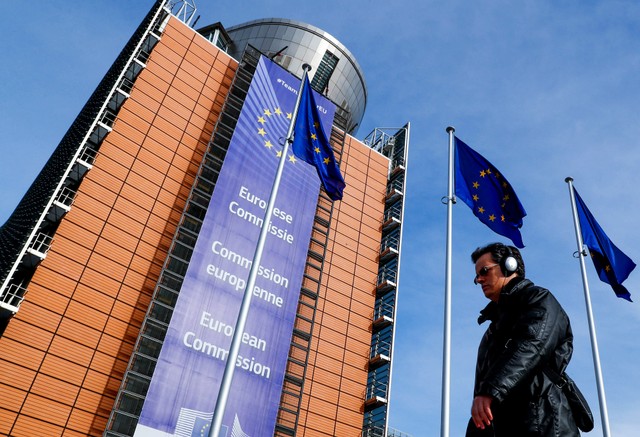EU election race gets exciting with France-Italy differences

- Country:
- France
- Italy
France's decision to withdraw its ambassador to Italy may be the biggest diplomatic fracas between the neighbours since Benito Mussolini declared war on France in 1940, but the trans-Alpine stand-off has its roots in more recent events. On Aug. 28 last year in Milan, Italian Deputy Prime Minister Matteo Salvini and Hungarian Prime Minister Viktor Orban met to discuss strategy ahead of this May's European Parliament elections, promising to pursue an anti-immigration agenda.
"Macron is the leader of the pro-migration parties in Europe today," Orban, a constant thorn in the European Union's side on immigration, declared after their talks. "And here we are, the ones who want to stop illegal immigration." It was a provocation that the young French president, then barely a year into office on an avowedly pro-EU platform, could not ignore. He was on a tour of Nordic states at the time and responded at a news conference the next day.
"It is clear that a strong opposition is building up between nationalists and progressives, and I will yield nothing to nationalists and those who advocate hate speech," Macron told reporters in Copenhagen. "So if they want to see me as their main opponent, they are right to do so." While there had been moments of sniping between Macron and Salvini, the head of the far-right League party, before then, at that point the gloves were off, with the Italian and his fellow deputy prime minister, Luigi Di Maio, losing no opportunity to prod the French leader.
From criticism of France for returning migrants across the border to Italy to French "neo-colonialism" in Africa and Macron's prospects in the European elections, the Italian duo has repeatedly goaded the 41-year-old French president.
"IT'S NOT HARMLESS"
Macron, who has a reputation for a sharp tongue himself, has mostly tried to ignore the provocations, saying during a visit to Cairo last month that Salvini and Di Maio's remarks were irrelevant and he dealt with Prime Minister Giuseppe Conte. But Di Maio's decision this week to visit France and meet several representatives of the "yellow vest" movement, which for months has waged a sometimes violent campaign against Macron and his policies, was deemed a bridge too far.
"The idea that a (deputy) prime minister of an EU country would come to France without letting France know in advance ... It's not some harmless thing," said a French diplomatic source. "It's just not acceptable behaviour within the EU ... "One hopes (withdrawing the ambassador) will force some reflection among the political parties and Italian institutions. It cannot help but underline how serious the situation is."
Officials say the ambassador will probably be sent back soon, but tensions are likely to persist. There are still more than three months to go until the European elections, which are shaping up to be the most divisive since they were first held in 1979. Far-right and populist parties are expected to win up to a third of the seats.
According to Prime Minister Conte, Salvini, 45, and Di Maio, 32, both want to prop up their electoral bases. Conte told Chancellor Angela Merkel at the World Economic Forum in Davos that Salvini does that by hammering the theme of immigration and attacking France, while Di Maio, head of the anti-establishment 5-Star movement, just focuses on France.
Macron once hoped to run pan-European lists for the European elections, a proposal that had EU leaders worried about encroachment on their turf. Now he will have to focus on shoring up his flagging support at home while trying to keep Salvini, Di Maio and their verbal provocations at arm's length.
(With inputs from agencies.)
- READ MORE ON:
- Brigitte Macron
- Emmanuel Macron
- Pierre-Emmanuel Barré
- The Standoff
- Mexican standoff
- AGM-154 Joint Standoff Weapon
- France Info
- France 3
- France Inter
- Alessandro Di Battista
- Luigi Di Maio
- Daniela Santanchè
- Matteo Renzi
- Matteo Salvini
- Bruno Vespa
- Neighbours from Hell
- Olympia Valance
- Holby City
- European Union
- Alpine skiing
ALSO READ
Woman stabbed to death by neighbours in Delhi’s Shahdara, suspects cry foul
Iran says neighbours notified of attacks on Israel 72 hours in advance
Motor racing-Alpine fined 10,000 euros for pitstop blunder
Contest between nationalists and dynastic forces in Lok Sabha elections, says BJP's Himachal chief
Alpine skiing-Austrian ski great Hirscher going Dutch for comeback










